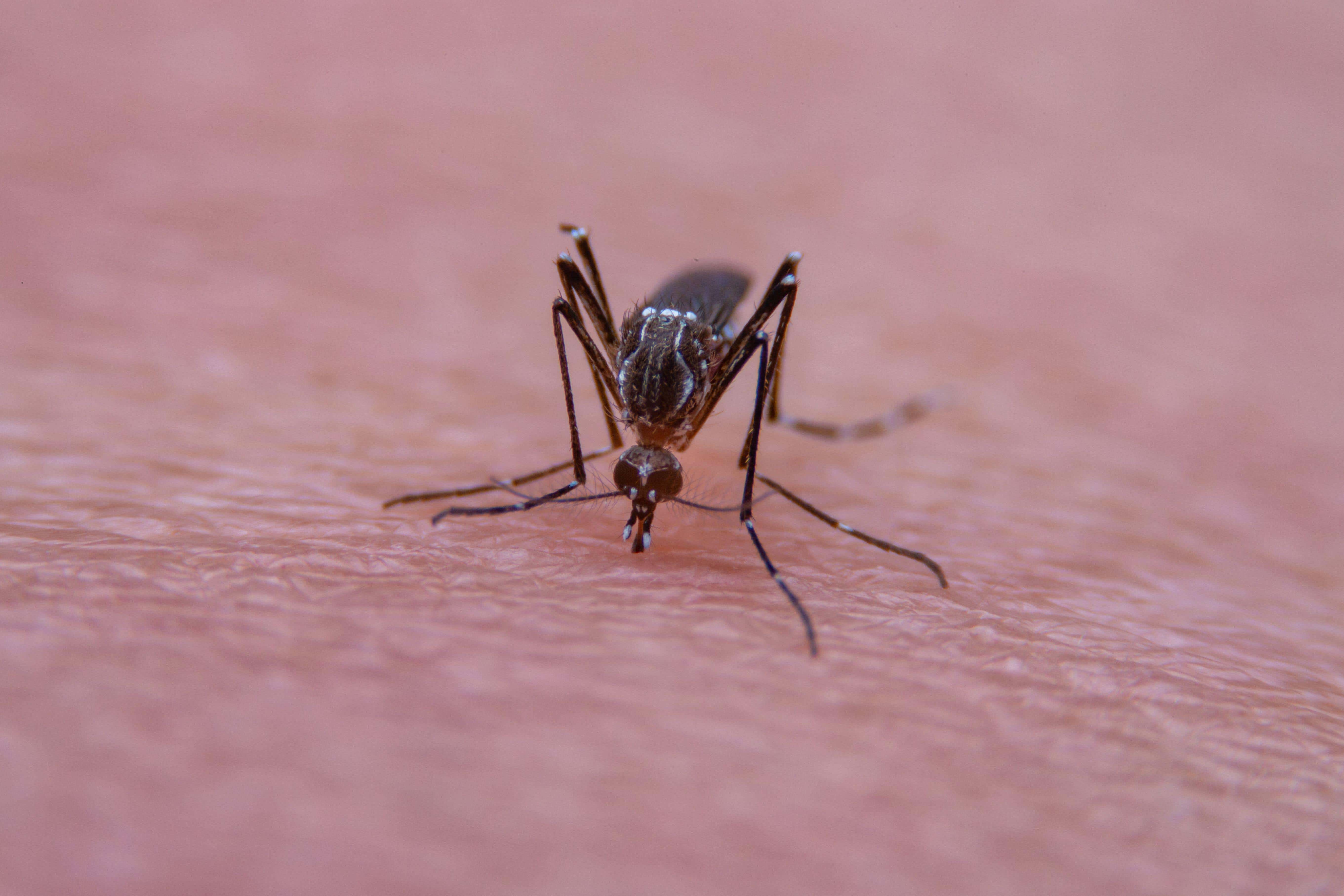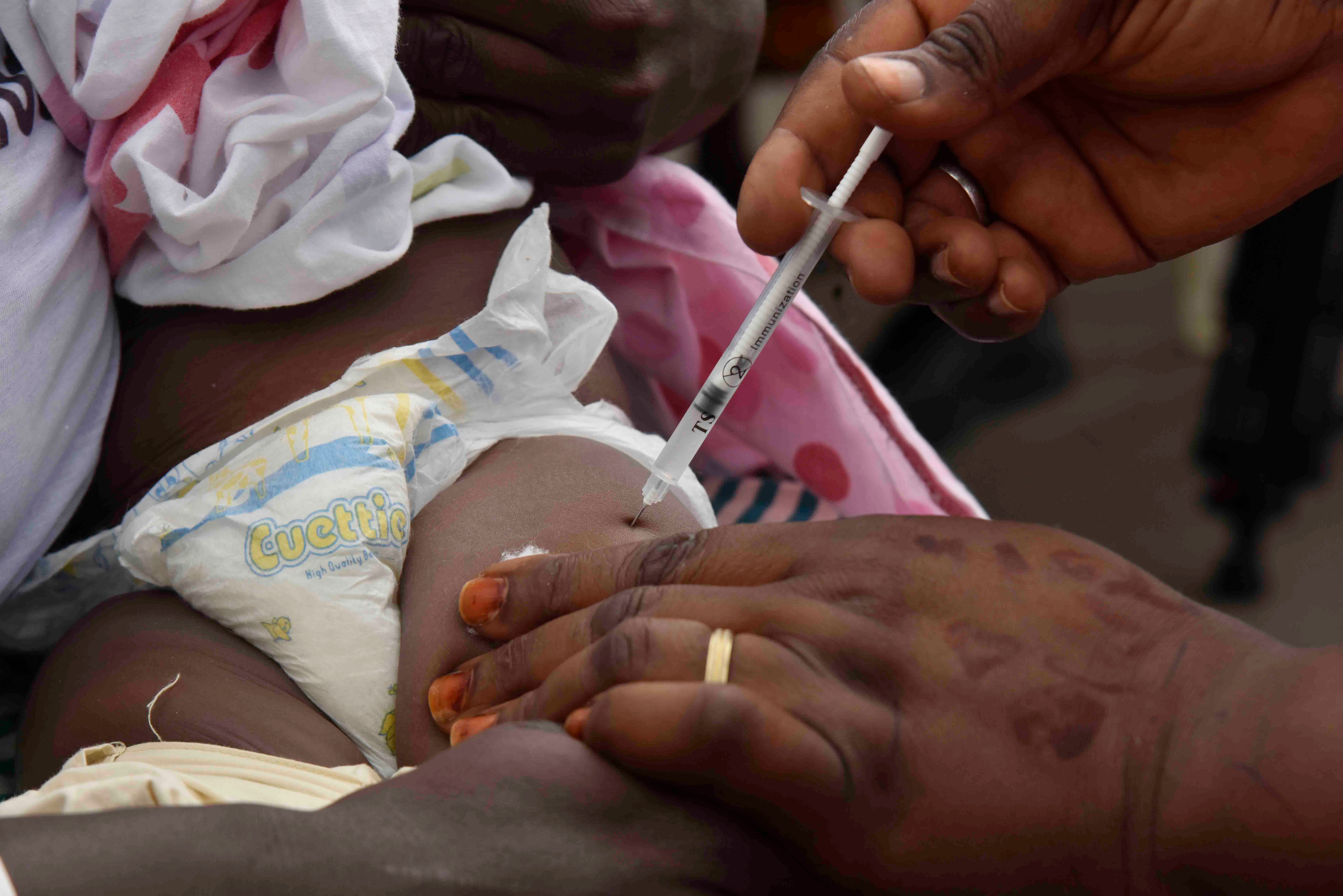Anyone travelling abroad this Christmas has been warned of malaria as cases among people who caught the disease abroad are at their highest level in almost 25 years.
The UK Health Security Agency (UKHSA) urged people travelling abroad for Christmas to take care following a rise in travel-related mosquito infections such as dengue and malaria, which can cause serious illness and death.
Some 2,106 cases of imported malaria were reported in the UK in 2023, a 26 per cent rise on the cases in 2022 (1,555).
The 2023 figure also represents the highest number of cases seen in the UK since 2001.
According to the UKHSA, the rise in cases is linked to the resurgence of malaria in many countries and an increase in overseas travel following the removal of Covid pandemic restrictions.
Some six people died in the UK in 2023 as a result of malaria, which is the same as the yearly average of six deaths between 2014 and 2023.
Figures for January to June this year also show there were 753 travel-acquired malaria cases reported in the UK.
What is malaria?
Malaria is a disease caused by parasites that are transmitted through the bites of infected female mosquitoes, the Save The Children charity states.
The NHS warns that without prompt treatment, a person suffering from malaria could develop severe and life-threatening complications, such as breathing problems and organ failure.
According to the WHO, most malaria cases and deaths occur in sub-Saharan Africa. However, it’s found in more than 100 countries around the world.
What are the symptoms?
The NHS states that early symptoms of malaria include a high temperature of 38C or above, headaches, vomiting, muscle pains, diarrhoea and feeling hot and shivery.
Symptoms typically appear between seven and 18 days after a person becomes infected.
However, in some cases symptoms may not appear for up to a year, or occasionally even longer.
Save The Children adds that children with severe malaria frequently develop symptoms of severe anaemia (e.g. fatique, dizziness, pale skin) or respiratory distress.

From January to June this year, there were 473 dengue cases reported in returning travellers across England, Wales and Northern Ireland, a “significant increase” from the 157 during the same period in 2023, the UKHSA said.
This is the highest number of cases reported in the first six months of any year since dengue surveillance began in 2009 and reflects a global rise.
Dengue symptoms usually start four to 10 days after being bitten by an infected mosquito and include high temperature, severe headache, muscle and joint pain, feeling or being sick, a rash and swollen glands.
Between January and June, eight Zika virus cases were also reported in England, Wales and Northern Ireland, a rise on the one case during the same period last year.
Most of these cases were linked to travel in South-East Asia.
Although rare, Zika is carried by mosquitoes and is a significant risk to pregnant women because it can cause birth defects.
Dr Philip Veal, public health consultant at the UKHSA, said: “As many people prepare to travel over the winter period, it is important to take precautions against serious mosquito-borne infections.
“Simple steps, such as using insect repellent, covering exposed skin, and sleeping under insecticide-treated bed nets, can help reduce the risk of malaria, dengue and Zika virus infection.
“Taking malaria prevention tablets appropriately is highly effective in avoiding the disease.
“Before you travel, check the TravelHealthPro website for the latest health advice on your destination.
“Even if you’ve been to a country before, remember that you don’t have the same level of protection against infections as permanent residents and are still at risk.”

Dr Dipti Patel, director of the National Travel Health Network and Centre, said people should check they are up to date with travel jabs, adding: “People travelling abroad during the Christmas break should plan ahead to ensure they have a safe and healthy trip.
“Upon returning to the UK, if you’re feeling unwell, you should seek medical attention and inform your healthcare provider about your recent travel.”
According to the UKHSA, travellers should ideally speak to their GP, practice nurse, pharmacist or travel clinic at least four to six weeks before they travel.
This is to check on vaccines and any medication they may need.
A vaccine for dengue is available privately that is suitable for people who have had previous dengue infection.

